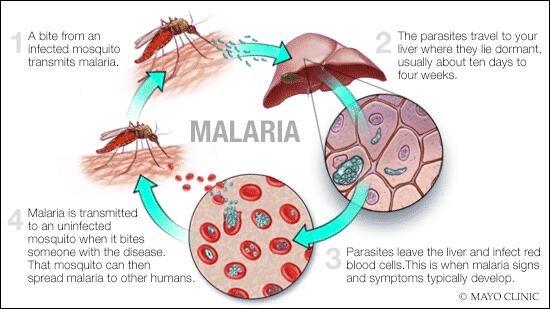ANTIMALARIALS RECOMMENDED FOR TRAVEL
If you’re planning a trip to a malaria-prone area, it’s crucial to take proper precautions to protect yourself from this potentially serious disease. Summit Health recommends considering the following antimalarial drugs: Malarone, Doxycycline, Chloroquine, and Mefloquine. Each drug has its benefits and potential side effects, so it’s important to consult with a healthcare professional before making a decision.
1. Malarone:
Mechanism of Action: Malarone is a combination medication containing atovaquone and proguanil. It works by interfering with the growth and reproduction of the malaria parasite in the body.
Benefits:
- Highly effective against both Plasmodium falciparum and Plasmodium vivax, the most common malaria parasites.
- Usually well-tolerated with minimal side effects.
- Available in both adult and pediatric formulations.
Considerations:
- Generally more expensive compared to other antimalarials.
- Should be started a day or two before entering a malaria-endemic area and continued for a week after leaving.
2. Doxycycline:
Mechanism of Action: Doxycycline is a broad-spectrum antibiotic that also has antimalarial properties. It works by inhibiting the growth of the malaria parasite.
Benefits:
- Effective against malaria and certain bacterial infections.
- Cost-effective option.
- Can offer protection against other insect-borne diseases like tick-borne infections and leishmaniasis.
Considerations:
- May cause sun sensitivity, so sun protection is essential.
- Potential side effects include gastrointestinal upset and yeast infections.
- Not recommended for pregnant women, children under 8 years old, or individuals with certain medical conditions.
3. Chloroquine:
Mechanism of Action: Chloroquine is an older antimalarial drug that works by accumulating in the parasite’s food vacuole, disrupting its metabolism.
Benefits:
- Cost-effective.
- Well-established safety profile when used in recommended doses.
- Can be used for both prevention and treatment of malaria.
Considerations:
- Resistance to chloroquine has developed in many parts of the world, so its effectiveness varies by region.
- Potential side effects include gastrointestinal upset, skin reactions, and retinal toxicity with prolonged use.
4. Mefloquine:
Mechanism of Action: Mefloquine interferes with the malaria parasite’s ability to metabolize and reproduce.
Benefits:
- Long-lasting protection, as it can be taken once a week.
- Effective against chloroquine-resistant strains of malaria.
- Suitable for people unable to take other antimalarials.
Considerations:
- Some individuals may experience neuropsychiatric side effects such as vivid dreams, anxiety, or depression. It’s crucial to discuss any history of mental health issues with a healthcare provider.
- Not recommended for individuals with certain medical conditions, including epilepsy and certain heart conditions.
Before making a decision about which antimalarial drug to take, it’s important to consult a healthcare professional. They can consider your individual health status, travel itinerary, and potential drug interactions to recommend the most suitable option for you. Additionally, alongside taking antimalarials, other preventive measures such as using insect repellents, wearing long-sleeved clothing, and sleeping under bed nets are essential to reduce the risk of contracting malaria.

